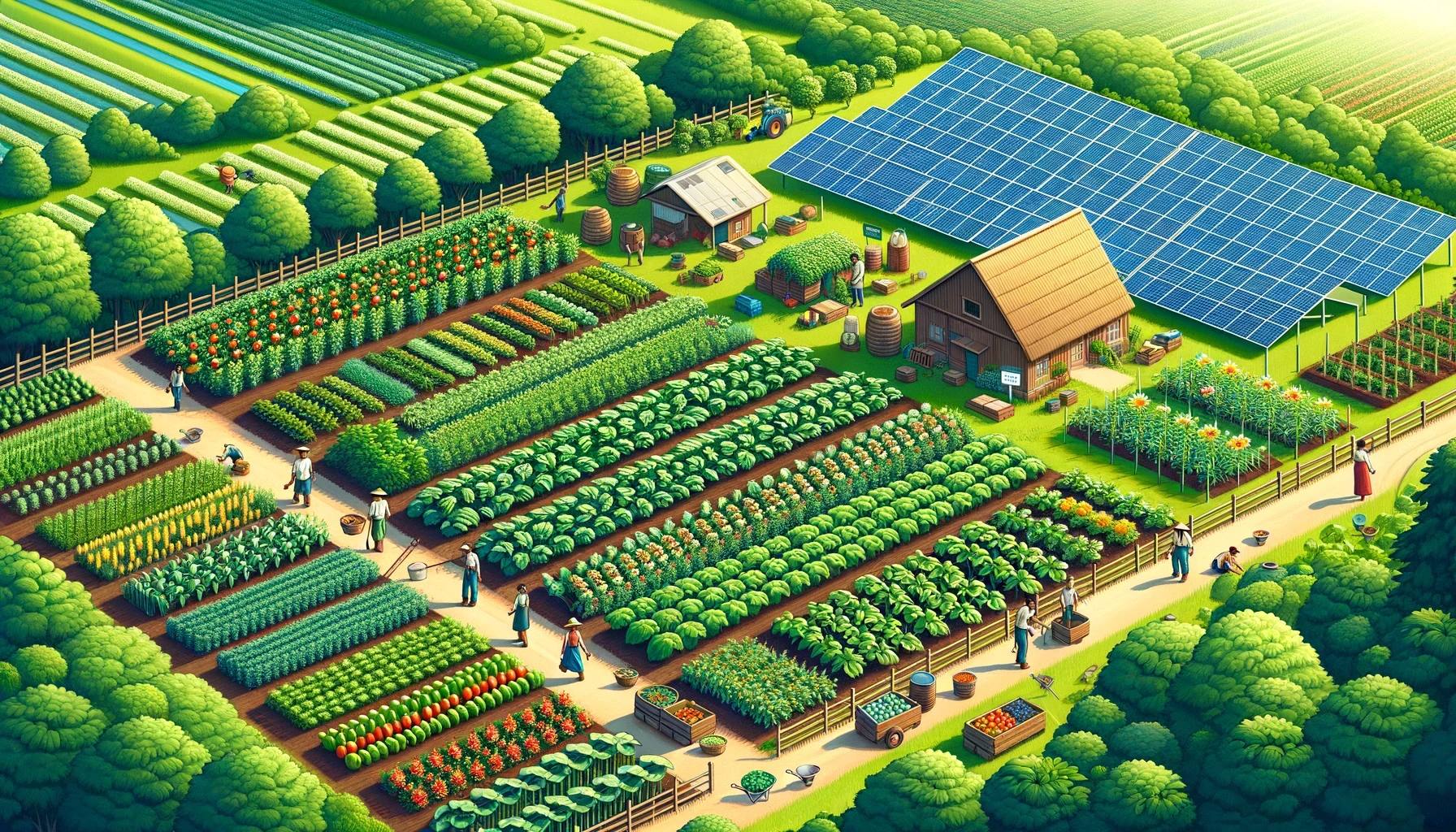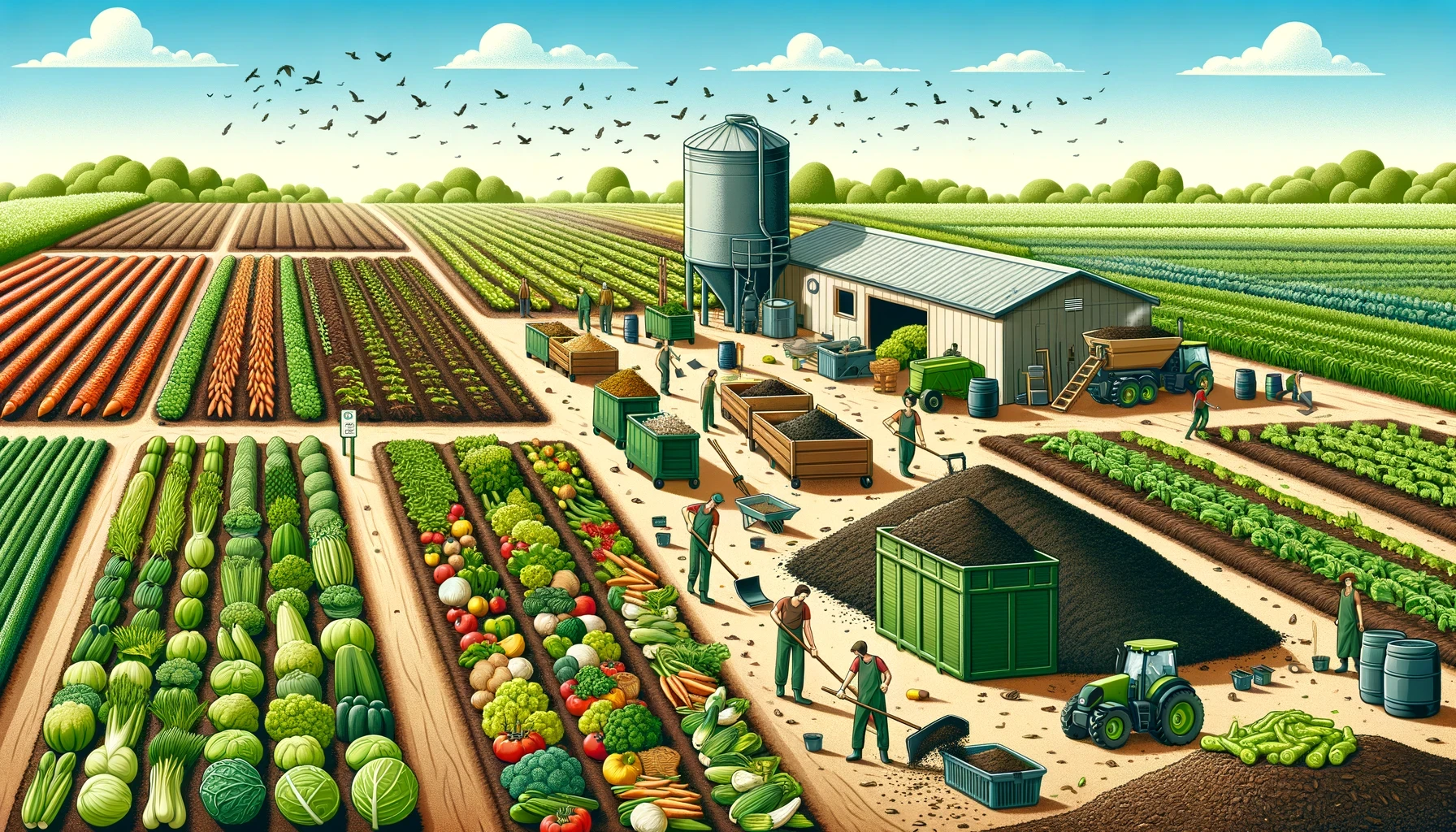I am excited to share with you the fascinating world of sustainable nutrition. As an advocate for eco-friendly choices and a lover of food sustainability, I believe that this is the way forward for a healthier planet. In recent years, we have witnessed a surge in health trends, with more and more people embracing plant-based diets and organic supplements.
Sustainable nutrition goes beyond just nourishing our bodies; it encompasses a holistic approach that considers the health of individuals, the planet, and society as a whole. With the global population estimated to reach 9.6 billion by 2050, it is crucial that we address environmental degradation and find sustainable solutions to feed everyone. Currently, a staggering 30% of globally produced food goes to waste, while many people suffer from undernourishment.
The goals of sustainable nutrition are two-fold. Firstly, it aims to achieve optimal growth and development, prevent malnutrition, and reduce the risk of diet-related diseases. Secondly, it seeks to support biodiversity and planetary health by implementing responsible and eco-friendly practices throughout the food system.
By embracing sustainable nutrition, we can make a positive impact on our own well-being while contributing to the health of the planet. It is not just a passing trend; it is the future of food and supplements. Let’s join hands and embark on this inspiring journey towards a sustainable and eco-friendly future.
What is Sustainable Nutrition?

Sustainable Nutrition refers to food systems that provide sufficient energy and essential nutrients to maintain good health while ensuring the ability of future generations to meet their nutritional needs. It encompasses a holistic approach that considers the health of people, the planet, and society. With a growing population and accelerated environmental degradation, finding solutions to feed everyone sustainably is crucial. Sustainable nutrition aims to reconcile limited natural resources with food consumption and production choices. It aligns with the United Nations’ Sustainable Development Goals and focuses on achieving optimal growth and development, preventing malnutrition, reducing the risk of diet-related diseases, and supporting biodiversity and planetary health.
In today’s world, food systems face numerous challenges, including environmental degradation and the need to meet the nutritional needs of a growing population. Sustainable nutrition offers a viable solution by integrating environmental, social, and economic factors into the food production and consumption process. It recognizes that our food choices have a significant impact on both our health and the health of the planet.
At its core, sustainable nutrition emphasizes the importance of balanced diets that are rich in essential nutrients while minimizing the environmental footprint. It promotes plant-based diets, reduces food waste, and supports sustainable farming practices. By adopting sustainable nutrition practices, we can ensure that everyone has access to nutritious food while preserving our planet for future generations. Sustainable nutrition is not just a concept; it is a pathway towards a healthier and more sustainable future.
Dimensions of Sustainable Nutrition
Sustainable nutrition encompasses various dimensions that need to be considered for a comprehensive approach. These dimensions include health and nutrition, environmental impact, economic impact, and socio-cultural impact. Each dimension plays a crucial role in achieving sustainable nutrition and ensuring a healthier future for both individuals and the planet.
Health and Nutrition
One of the primary dimensions of sustainable nutrition is ensuring the availability of adequate and nutritious food to all individuals. This involves addressing undernourishment and promoting healthy diets that meet the nutritional needs of people. By focusing on health and nutrition, sustainable nutrition aims to prevent malnutrition, promote optimal growth and development, and reduce the risk of diet-related diseases.
Environmental Impact
The environmental dimension of sustainable nutrition recognizes the significant impact that food systems have on the planet. It encompasses various factors such as climate change, resource use, pollution, deforestation, biodiversity loss, and packaging waste. By adopting sustainable practices throughout the food supply chain, including sustainable farming methods and reducing food waste, sustainable nutrition aims to mitigate these environmental impacts and preserve the health of our ecosystems.
Economic Impact
Sustainable nutrition also has an economic dimension. It considers the financial aspects of food production, distribution, and consumption. By promoting sustainable practices, such as efficient resource use and responsible waste management, sustainable nutrition aims to create an economically viable food system. This involves ensuring fair and equitable access to nutritious food for all, as well as supporting the livelihoods of farmers and food producers.
Socio-Cultural Impact
The socio-cultural dimension of sustainable nutrition emphasizes the cultural acceptability and accessibility of sustainable diets. It recognizes that food choices are shaped by cultural practices, traditions, and social norms. Sustainable nutrition aims to promote culturally acceptable and accessible food options that align with sustainable practices. This involves educating and empowering individuals and communities to make informed choices that contribute to their well-being while supporting the sustainability of our food systems.
| Dimension | Description |
|---|---|
| Health and Nutrition | Focuses on providing adequate and nutritious food to all, promoting optimal growth, and preventing diet-related diseases. |
| Environmental Impact | Addresses the impact of food systems on climate change, resource use, pollution, deforestation, biodiversity, and packaging waste. |
| Economic Impact | Considers the financial aspects of sustainable nutrition, including fair access to food and supporting the livelihoods of farmers. |
| Socio-Cultural Impact | Promotes culturally acceptable and accessible food options that align with sustainable practices. |
Achieving Sustainable Nutrition
To achieve sustainable nutrition, it is essential to address both food production and food consumption practices. Sustainable food production involves implementing environmentally friendly agricultural methods, such as organic farming and regenerative practices, to reduce the use of harmful chemicals and promote soil health. Additionally, it focuses on responsible waste management to minimize environmental impact. By adopting sustainable food production practices, we can ensure the long-term health of our ecosystems and preserve valuable natural resources.
Equally important is sustainable food consumption. This requires making conscious choices about the foods we eat and the impact they have on the environment. One of the key solutions is transitioning to plant-based diets, which have been shown to have a lower carbon footprint and reduce land and water usage compared to diets rich in animal products. Additionally, minimizing food waste and selecting products with minimal packaging can further contribute to sustainable nutrition.
It is crucial to recognize that achieving sustainable nutrition requires collective efforts. Individuals can make a difference by making informed choices about their food consumption and advocating for sustainable practices. However, governments and businesses also play a significant role in creating an enabling environment for sustainable food production and consumption. This can be done through regulations that support sustainable agriculture, incentives for farmers to adopt environmentally friendly practices, and raising awareness among consumers about the importance of sustainable nutrition.

Benefits of Achieving Sustainable Nutrition
“By adopting sustainable nutrition practices, we can not only safeguard the health of our planet but also improve our own well-being. Sustainable diets rich in plant-based foods have been linked to numerous health benefits, including a reduced risk of chronic diseases like heart disease, diabetes, and certain types of cancer. Additionally, sustainable food production can help mitigate climate change, protect biodiversity, and ensure a more resilient and secure food supply for future generations.”
| Benefits of Achieving Sustainable Nutrition | How to Achieve It |
|---|---|
| Reduced environmental impact | Transition to plant-based diets, reduce food waste, promote sustainable farming methods |
| Improved personal health | Adopt sustainable diets rich in fruits, vegetables, whole grains, and legumes |
| Preservation of biodiversity | Support sustainable agriculture practices that protect natural habitats |
| Increased food security | Implement sustainable farming methods, reduce reliance on finite resources |
By prioritizing sustainable nutrition, we can pave the way for a healthier future, both for ourselves and the planet. Through informed choices and collective action, we can create a food system that not only meets our nutritional needs but also respects the limits of our planet’s resources. Embracing sustainable food production and consumption practices is not only a responsibility; it is an opportunity to shape a better, more sustainable world for future generations.
Examples of Sustainable Diets
When it comes to sustainable nutrition, adopting a sustainable diet is a powerful way to make a positive impact on both our health and the environment. Sustainable diets are not only beneficial for our well-being but also have a low environmental impact. They are designed to be accessible, affordable, and culturally acceptable, making them suitable for people from all walks of life.
One example of a sustainable diet is a plant-based diet, which focuses on consuming fruits, vegetables, whole grains, and legumes while reducing the consumption of animal products. Plant-based diets have been shown to have numerous health benefits, such as lower incidences of heart disease, obesity, and type 2 diabetes. By reducing the reliance on animal agriculture, plant-based diets also contribute to lower greenhouse gas emissions, water usage, and land degradation. They are a sustainable choice that promotes personal health while protecting the health of the planet.
“A sustainable diet is not only about what we eat, but also about the impact our food choices have on the environment and society. By choosing a diet that is healthy, low in environmental impact, accessible, affordable, and culturally acceptable, we can play an active role in creating a more sustainable food system.” – Nutrition Scientist
Another example of a sustainable diet is the Mediterranean diet, which is based on the traditional eating habits of people from Mediterranean countries. This diet includes a variety of fresh fruits and vegetables, whole grains, legumes, nuts, and seeds. It also incorporates lean proteins such as fish and poultry, and encourages the use of olive oil as the primary source of fat. The Mediterranean diet has been associated with reduced risk of heart disease, cancer, and Alzheimer’s disease. It is also considered a sustainable diet due to its focus on locally sourced, seasonal foods and its minimal environmental impact.
In summary, sustainable diets are a key component of sustainable nutrition. They prioritize both personal health and the health of the planet. By choosing sustainable diets like plant-based or Mediterranean diets, individuals can contribute to a more sustainable food system. These diets offer a pathway to a healthier future, where nutritious food is accessible, affordable, and culturally acceptable for everyone.
The Environmental Impact of Sustainable Nutrition
Food systems play a significant role in shaping our environment, with far-reaching consequences on greenhouse gas emissions, land usage, water consumption, and biodiversity loss. Addressing these environmental impacts is a crucial aspect of sustainable nutrition. By promoting sustainable practices throughout the food supply chain, we can mitigate the detrimental effects of our current food systems and work towards a healthier planet.
Greenhouse gas emissions: Food systems contribute up to 35% of global greenhouse gas emissions, mainly from livestock farming and the use of synthetic fertilizers. Embracing sustainable nutrition involves shifting towards more plant-based diets, as plant-based foods generally have lower carbon footprints compared to their animal-based counterparts.
Land and water usage: Food production occupies approximately 40% of the Earth’s land area and accounts for 70% of freshwater usage. Sustainable nutrition promotes responsible land and water management practices to minimize resource consumption. This includes optimizing irrigation techniques, practicing regenerative agriculture, and reducing food waste throughout the supply chain.
“Sustainable nutrition involves reimagining our food systems to minimize their impact on the environment, ensuring that we can feed future generations while protecting our planet’s natural resources.”
Biodiversity loss: Food systems are the largest driver of biodiversity loss, primarily through deforestation for agriculture and intensive farming practices. Sustainable nutrition aims to preserve biodiversity by promoting sustainable farming methods that prioritize soil health, protect natural habitats, and minimize the use of harmful pesticides and herbicides.
Through sustainable nutrition practices, we can significantly reduce the environmental footprint of our food systems. By making informed choices about what we eat, supporting sustainable farming methods, and advocating for policy changes, we can contribute to a healthier and more sustainable future for ourselves and the planet.
Conclusion
Sustainable nutrition is not just a buzzword; it is shaping the future of food and supplements. As I reflect on the importance of sustainable nutrition, I realize that the choices we make today have a profound impact on the world we leave behind for future generations.
By opting for eco-friendly choices and embracing sustainable practices, we can contribute to a healthier planet. It is up to each and every one of us to make conscious decisions about the food we consume, considering its impact on both our own well-being and the environment.
Through sustainable nutrition, we have the power to create a future where nutritious food is produced and delivered in a way that prioritizes the health of people, the planet, and society. By embracing this path, we are not only nourishing our bodies but also safeguarding the natural resources and biodiversity that sustain us.
Let us come together as individuals, businesses, and governments to implement sustainable practices across the entire food system. Together, we can pave the way for a future where sustainable nutrition is the norm, and our planet thrives as a result. The journey towards a healthier planet starts with the choices we make today.
FAQ
What is sustainable nutrition?
Sustainable nutrition is the practice of producing and delivering food in a way that is mindful of the health of individuals, the planet, and society. It aims to address environmental degradation while feeding a growing population sustainably.
What are the dimensions of sustainable nutrition?
Sustainable nutrition involves multiple dimensions, including health and nutrition, environmental impact, economic impact, and socio-cultural impact. These dimensions consider the well-being of people, the planet, and society in relation to food production and consumption choices.
How can we achieve sustainable nutrition?
Sustainable nutrition can be achieved through sustainable food production practices, such as environmentally friendly agricultural methods and responsible waste management. It also involves sustainable food consumption choices, like opting for plant-based diets and reducing food waste.
What are examples of sustainable diets?
Sustainable diets include plant-based diets that prioritize fruits, vegetables, whole grains, and legumes, while reducing the consumption of animal products. These diets promote sustainable protein sources, food safety, and nutrients beneficial for health.
What is the environmental impact of food systems?
Food systems have a significant environmental impact, accounting for a large portion of greenhouse gas emissions, land usage, freshwater consumption, and biodiversity loss. Sustainable nutrition aims to mitigate these impacts through sustainable farming methods, resource efficiency, and reducing food waste.
